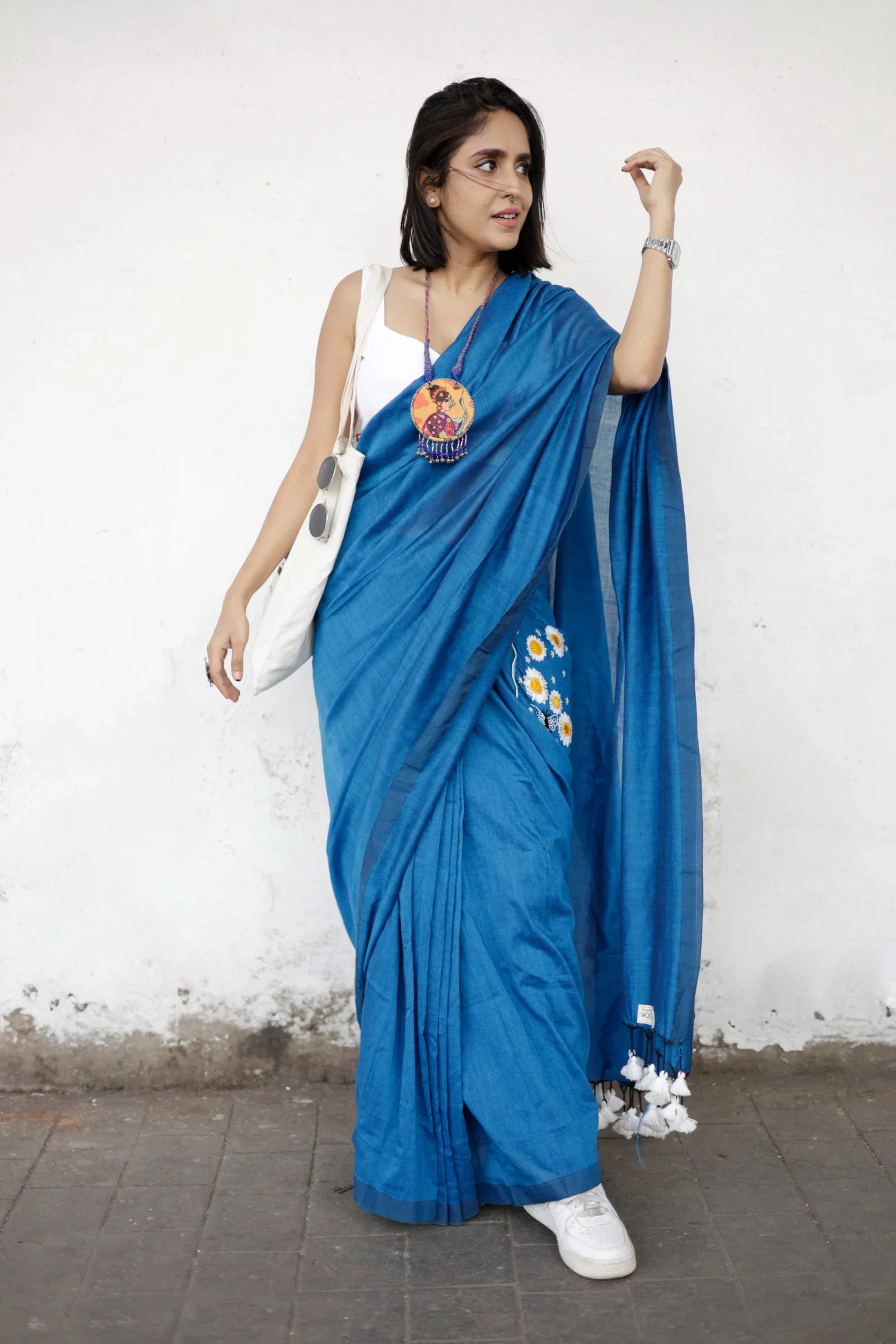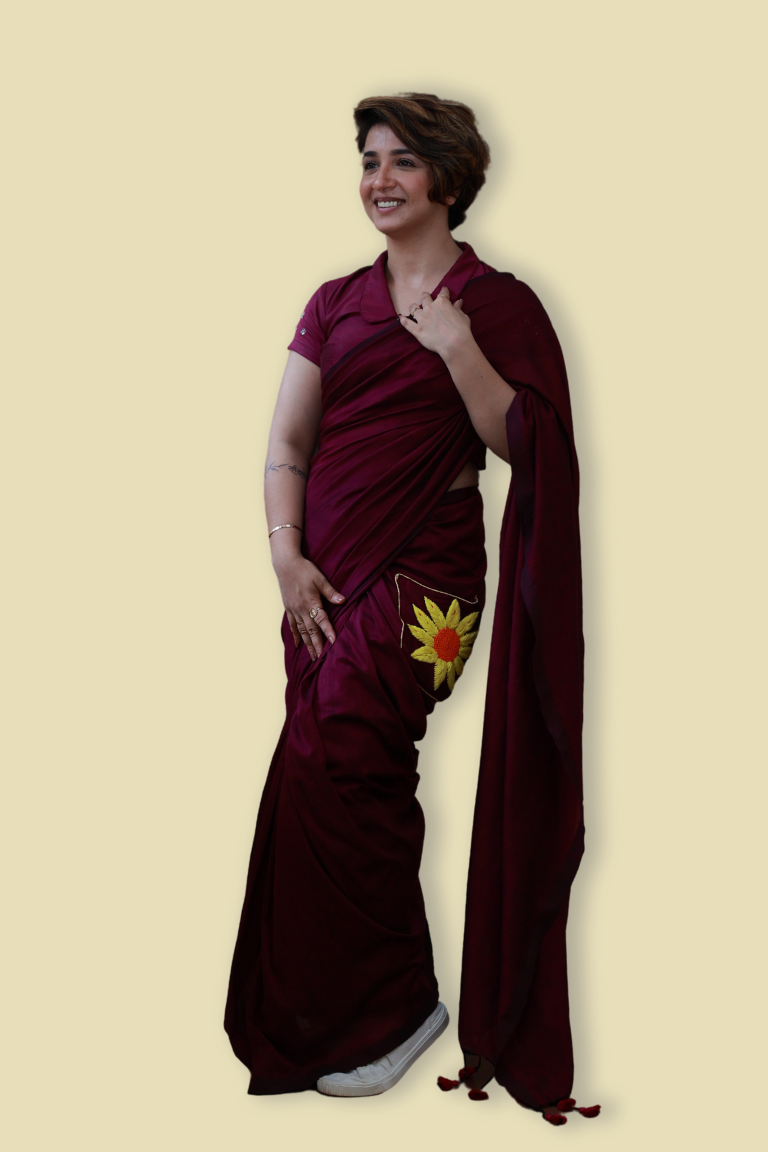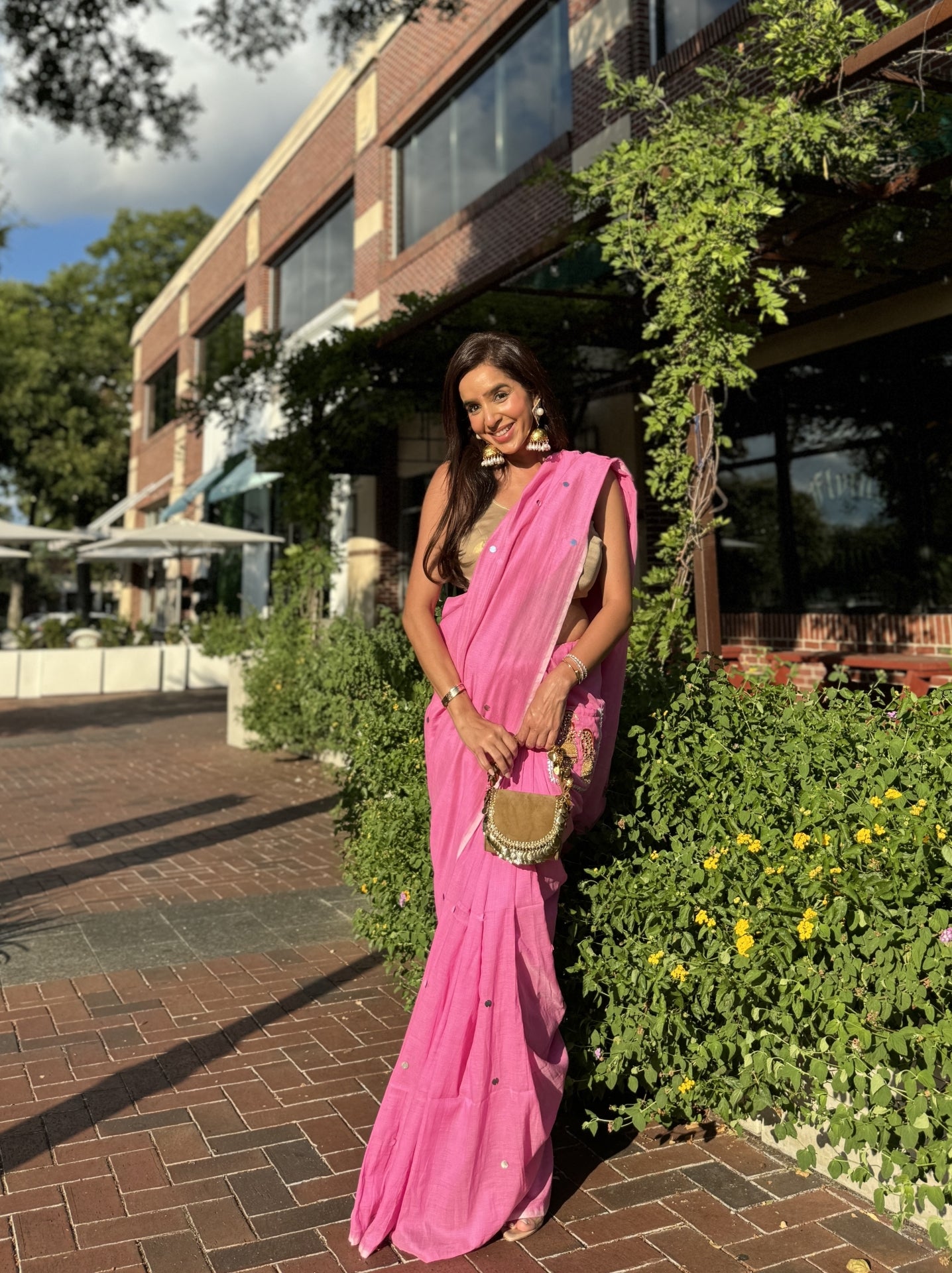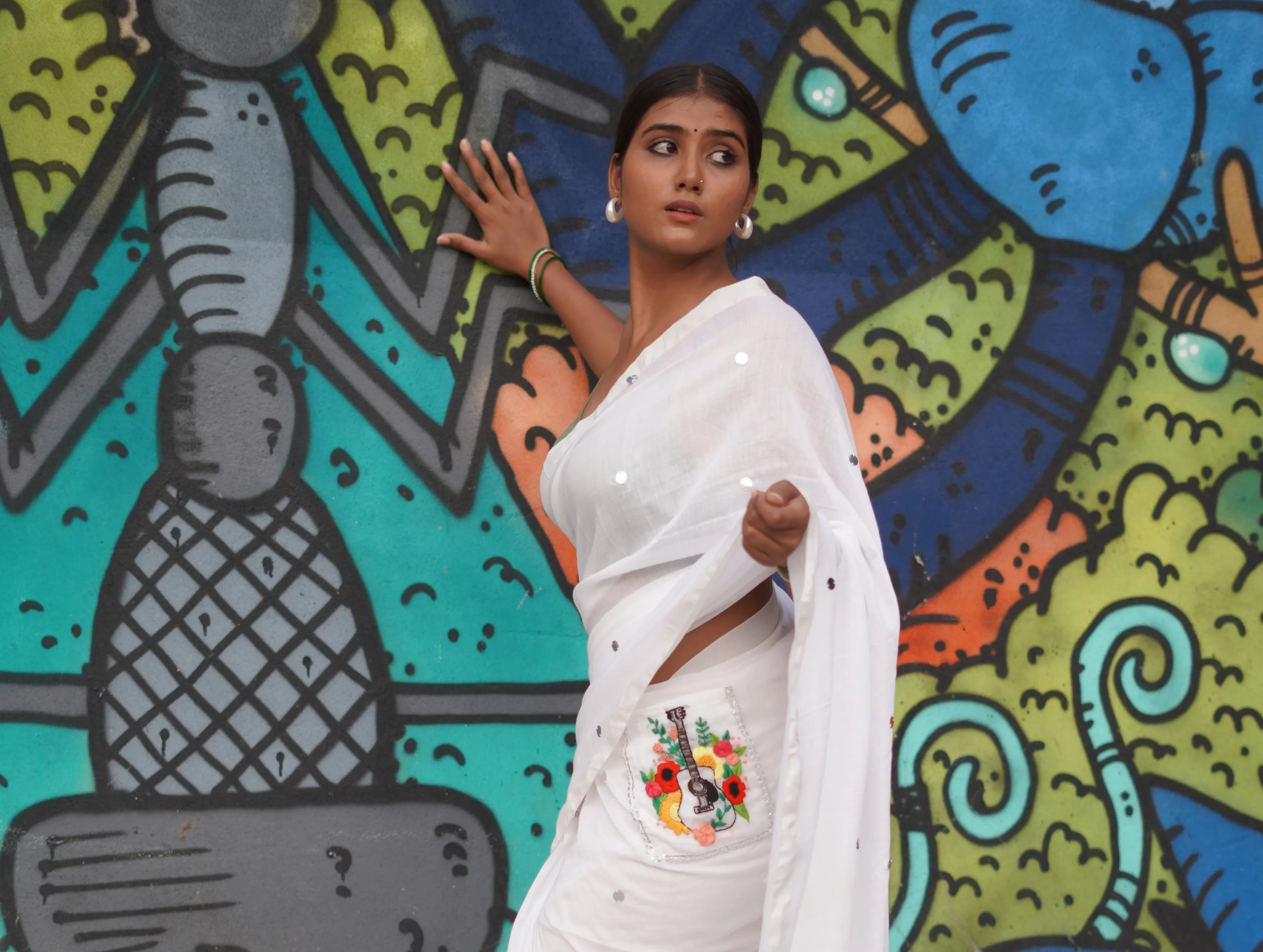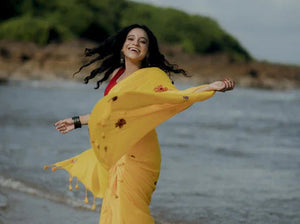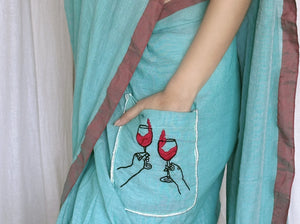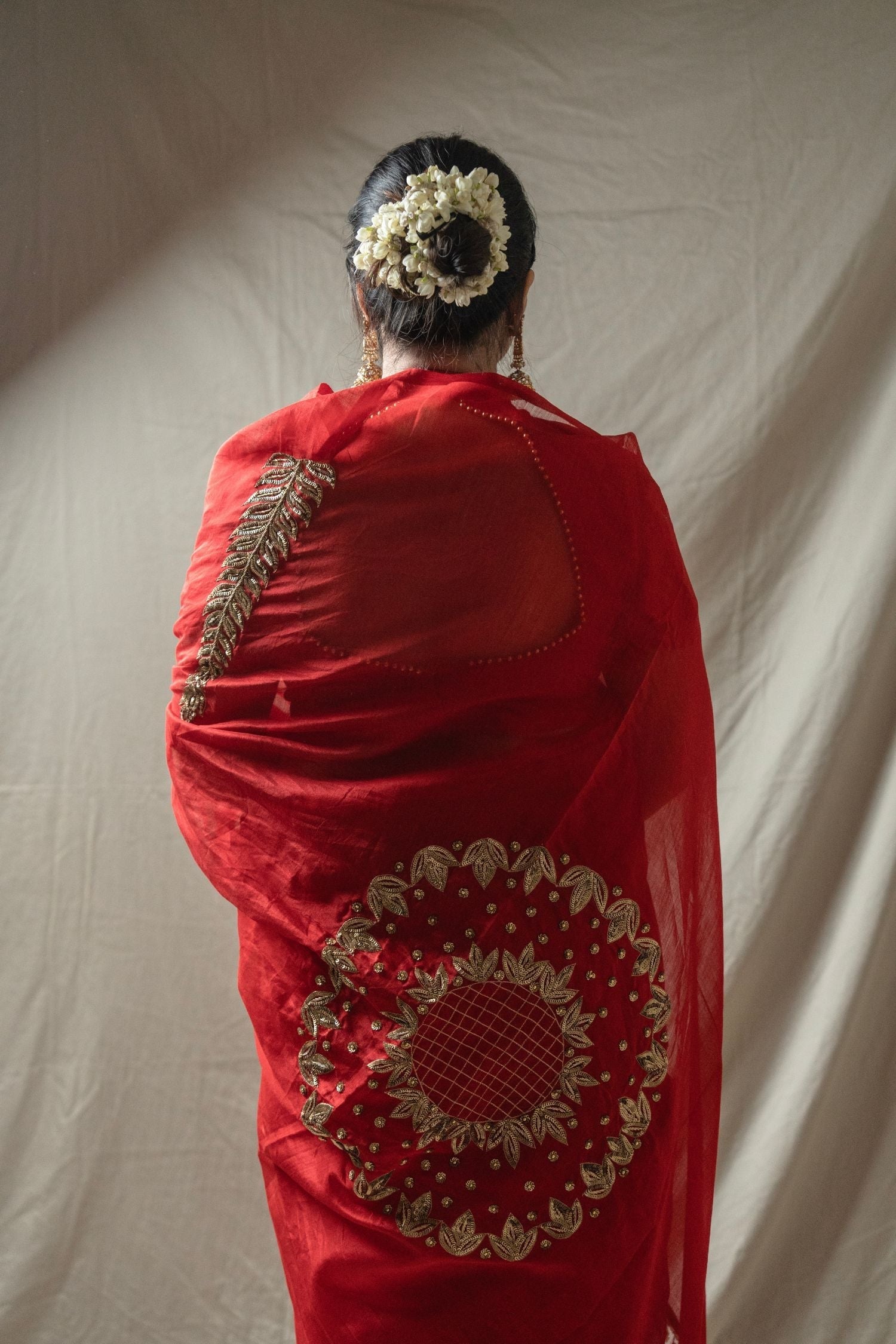Embroidery is an integral part of Indian saree craftsmanship, adding depth, elegance, and cultural richness to each piece. At Kozylook, we celebrate the intricate art of embroidery, which transforms simple fabrics into stunning works of art. This blog delves into the history, techniques, and cultural significance of embroidery in Indian sarees, showcasing how these timeless designs continue to captivate and inspire.
A Historical Perspective
The history of embroidery in India dates back to ancient times, with references found in the Vedic texts and ancient scriptures. The art flourished under the patronage of various dynasties, each contributing unique styles and techniques. From the Mughal empire's opulent zari work to the intricate threadwork of the Rajput courts, Indian embroidery evolved into a diverse and rich tradition.
Popular Embroidery Techniques
-
Zari Embroidery
- Origin: Mughal Empire
- Technique: Involves weaving metallic threads (gold, silver) into the fabric to create elaborate designs. Often used in wedding sarees and festive wear.
- Kozylook Collection: Our zari-embroidered sarees are perfect for making a grand statement at weddings and special occasions.
-
Kantha Embroidery
- Origin: West Bengal and Odisha
- Technique: Characterized by simple running stitches, kantha embroidery depicts folk motifs, animals, and nature-inspired designs. It is traditionally done on cotton and silk fabrics.
- Kozylook Collection: Explore our kantha sarees, blending traditional charm with contemporary aesthetics for a unique look.
-
Phulkari Embroidery
- Origin: Punjab
- Technique: Known for its vibrant floral motifs, phulkari uses bright, colorful threads on coarse cotton fabric. Each piece tells a story, often related to local folklore.
- Kozylook Collection: Our phulkari sarees bring a burst of color and joy, perfect for festive celebrations.
-
Chikankari Embroidery
- Origin: Lucknow, Uttar Pradesh
- Technique: Delicate and intricate, chikankari involves white thread embroidery on pastel fabrics, creating a subtle yet elegant effect.
- Kozylook Collection: Our chikankari sarees are ideal for daytime events and casual gatherings, offering a touch of elegance and sophistication.
-
Mirror Work (Shisha Embroidery)
- Origin: Gujarat and Rajasthan
- Technique: Incorporates small mirrors into the fabric, secured by embroidery. This style reflects light, adding a sparkling effect to the saree.
- Kozylook Collection: Discover our mirror work sarees that bring a festive flair to any occasion, perfect for those who love to shine.
Cultural Significance
Embroidery in Indian sarees is not just about aesthetics; it is deeply rooted in cultural traditions and rituals. Each region's embroidery style carries its own stories, symbols, and meanings. For instance, phulkari was traditionally crafted by Punjabi women as a part of their bridal trousseau, symbolizing prosperity and happiness. Similarly, chikankari was popularized by Mughal royalty and became a symbol of refinement and grace.
At Kozylook, we honor these traditions by working closely with skilled artisans who have inherited these techniques through generations. Our collections reflect the rich tapestry of Indian culture, combining traditional craftsmanship with contemporary designs.
The Modern Appeal
While rooted in tradition, embroidery in Indian sarees has evolved to suit modern tastes and lifestyles. Designers are experimenting with new patterns, colors, and fabrics, making embroidered sarees more versatile and accessible. Whether it’s a formal event, a casual outing, or a festive celebration, there’s an embroidered saree for every occasion.
Why Choose Kozylook?
At Kozylook, we are committed to providing high-quality, beautifully crafted sarees that honor the art of embroidery. Our sarees are not just garments; they are stories woven with threads of tradition and modernity. Each piece is meticulously crafted to ensure you receive a product that exceeds your expectations.
Caring for Your Embroidered Saree
To maintain the beauty of your embroidered saree, we recommend dry cleaning or gentle hand washing with mild detergent. Avoid wringing or twisting the fabric and dry it in the shade to prevent color fading and damage to the embroidery.
Conclusion
Embroidery in Indian sarees is a testament to the country’s rich cultural heritage and artistic brilliance. At Kozylook, we celebrate this art form by offering a wide range of embroidered sarees that cater to every taste and occasion. Explore our collections today and embrace the elegance and tradition of Indian embroidery with Kozylook.
Elevate your ethnic wardrobe and make a fashion statement that’s uniquely you. Happy shopping!


